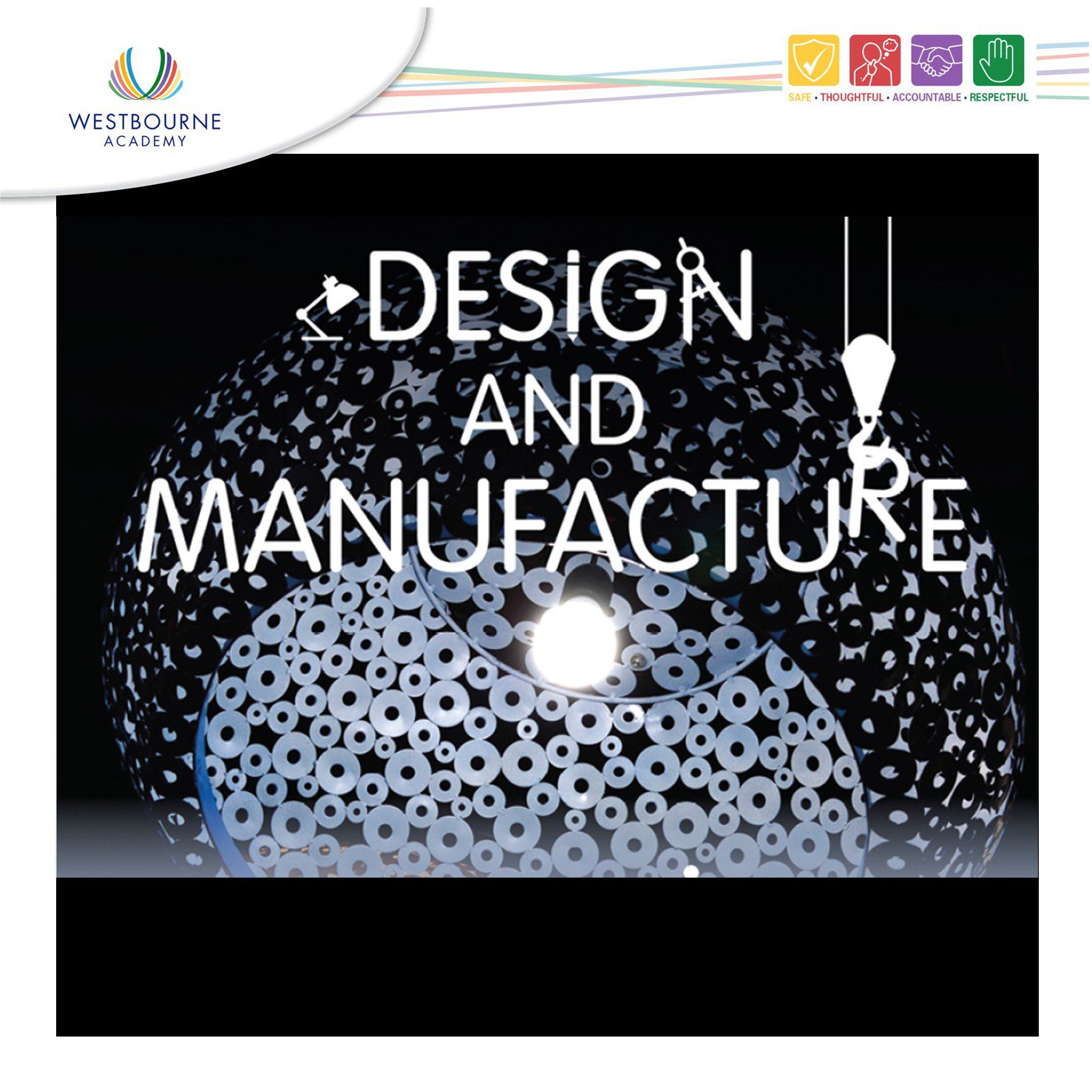Intent:
To provide students with a foundation of knowledge and skills in various material areas to prepare them ready to problem solve and access further education such as engineering, construction and product design. This is through a variety of creative and practical activities that look at designing as well as manufacturing and evaluating throughout the process. They will be applying technical knowledge such as material properties. Exposing students to cultural capital by providing trips and visits that are relevant to the curriculum and potential careers for students.
Curriculum
KS3 Westbourne Journey DT Inc Food
KS4 Westbourne Journey 3D Design
KS4 Westbourne Journey Design Technology
Y7 Westbourne Curriculum Overview DTY8 Westbourne Curriculum Overview DT
Y9 Westbourne Curriculum Overview DT
KS4 – Curriculum Overviews (under development)
KS3
All students will be studying DT on a Carousel system. This means they study all aspects and disciplines of design; timbers, metals, polymers, systems, textiles and food.
KS4 – Design and Technology
GCSE Examination Board: AQA https://www.aqa.org.uk/subjects/design-and-technology/gcse
GCSE Assessment Method:
Coursework
- Non-exam assessment (NEA): 30–35 hours approx
- 100 marks
- 50% of GCSE
Exam
- Written exam: 2 hours
- 100 marks
- 50% of GCSE
KS4 – 3D Design (Art and Design)
GCSE Examination Board: Eduqas https://www.eduqas.co.uk/qualifications/art-and-design-gcse/#tab_keydocuments
GCSE Assessment Method:
Portfolio:
- Coursework completed over a variety of project themes including researching, modelling, designing and manufacturing
- 120 marks
- 60% of GCSE
Externally set assignment:
- Project set by the exam board completed over 10 hours including researching, modelling and designing
- Practical exam: 10 hours to manufacture the final product
- 80 marks
- 40% of GCSE
Where Design and Technology can take you:
Many students go on to study A Level and level 3 courses such as Engineering at One sixth Form Centre, others go on to study vocational courses such as bricklaying and joinery at Suffolk New College. Students may wish to follow a career path in Design Technology varying from games design to architecture. Studying this subject is sure to show case employability skills such as problem solving, initiative, communication and organisation.


